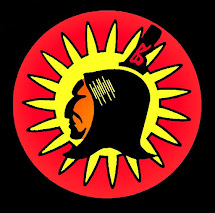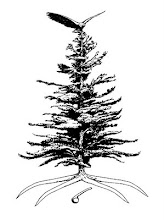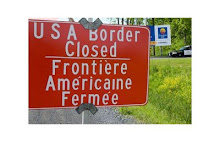Last week two stories about the ongoing battle by New York State and the U.S. federal government against the Native tobacco trade hit the papers.
Wednesday, February 12, 2014
A Tale of Two Cases
By John Kane - from the February 12, 2014 issue of the Two Row Times
Last week two stories about the ongoing battle by New York State and the U.S. federal government against the Native tobacco trade hit the papers.
Last week two stories about the ongoing battle by New York State and the U.S. federal government against the Native tobacco trade hit the papers.
In the state case (http://www.mpcourier.com/article/20140204/DCO/702049802),
the government prosecutor joined with defense attorneys in a motion to dismiss
felony charges against two men attempting to transport tobacco products from
Mohawk territory to Seneca territory in March 2012.
District Attorney Mary E. Rain told the St. Lawrence County
Court Judge Jerome J. Richards that she had determined there was not enough
evidence to prosecute.
Among several issues that Rain described as representing
"all kinds of problems with this case" was evidence she found in the
case file that was favorable to the defendants. She specifically cited emails
to and from the former District Attorney Nicole M. Duve dated August 14, 2012
where "She indicated in the emails that the Mohawk tribe was being singled
out and local law enforcement was being unjust."
At the federal level, the Kansas City Star reported that a
"New York company admits guilt in contraband cigarette case" (http://www.kansascity.com/2014/02/06/4803205/new-york-company-admits-guilt.html).
Aaron Pierce, a Seneca and former candidate for the President
of the Seneca Nation was referred to as an unindicted co-conspirator in a large
federal sting operation ran out of Kansas City between June 2010 and January
2012. His company, AJ's Candy and Tobacco LLC is the "New York state
tobacco wholesaler" that is the subject of the article.
According to the Star, the "wholesaler
pleaded guilty Thursday in federal court in Kansas City to trafficking
contraband cigarettes and agreed to pay up to $1 million in fines, forfeitures
and restitution."
The
dismissal of the charges in the New York State case demonstrates what many of
us have suggested for years about the discriminatory nature of law and law
enforcement in the state. But even with the sweeping of this case under the
rug, there is still a failure to address any state policy, regulation or law
that clearly establishes any legal authority to criminalize the Native tobacco
trade.
In
May 2011, I worked with New York State Senators George Maziarz and Timothy
Kennedy, both from Western New York, to make a formal request the Commissioner
of the State's Department of Taxation and Finance to state clearly and in
writing exactly what the state's policy was on the Native tobacco trade and
Native product, in particular. That letter and follow- ups to that request
remain unanswered but clearly lead authorities away from Seneca territory and
resulted in the concentration by State authorities on Mohawk territory.
The
federal case involving Aaron Pierce and AJ's Candy and Tobacco raises more
questions than it answers. The identity question for Aaron Pierce alone could
fill volumes but the core question here, too, is whether there is any clear and
legitimately established policy, regulation or law that criminalizes Native
trade?
The
crux of this case is the Contraband Cigarette Trafficking Act (CCTA). This law
characterizes at a federal level, any cigarettes found in a state requiring a
tax and stamp indicating the tax has been paid without a stamp as contraband
with very specific exceptions, none of which include Native trade, Native
product or Native people and lands. So what is created is an unclear federal law
that uses unclear state law to criminalize Native trade that supports the
economy on lands that both the state and federal governments know is not
theirs.
So
whether "AJ" pleads guilty to a crime, cooperates with state and
federal authorities to get convictions on him and others or buys his way out of
his fear of jail or a fight for sovereignty, does not mean a crime has been
committed.
The
question that I have for "AJ" is how can purchasing unstamped
cigarettes in Kansas City for sale on Native lands be a crime between 2010 and
2012 while AJ Candy and Tobacco buys and sells unstamped Native brands everyday
– including today? Is a pack of Marlboro's on the shelf of a Native smoke shop
contraband while a pack of Seneca's is not? Where is that written?
Where
is the line? Who draws it? And who is willing to defend it?
My
immediate assessment of these cases was there could only be one of three
explanations here. Either this is completely arbitrary with no real law behind
it with the state and feds making it up as they go along. OR they are conceding
that Native product in certain undefined areas can be traded by some people
under a different set of undefined laws from non-Native product. OR the entire Native tobacco trade is
criminal and they just don't know what to do about it or when to do it.
I
honestly think it’s the first one but would love to hear them admit the second.
Subscribe to:
Post Comments (Atom)













![-[]-[]-/\-[]-[]-](https://blogger.googleusercontent.com/img/b/R29vZ2xl/AVvXsEjLoXmKO8PJVQ5pZ2q7GX7nFKw8H2tb28dxt-o10FUBNtOGszWhWoLB7tgjtMgtISpuSxNW3fcDxfuSS2DqojsdjNJ1lVggyUS374PnzsDbOhk4ukvtTunFQcyfkckZeBzcLbri4LDYN_E/s214/29-03-A-voice-from-the-Akw-.jpg)





No comments:
Post a Comment